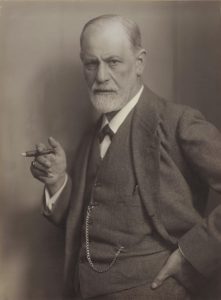In Singapore, many people do not know the differences between psychiatrist vs psychologist. What do Singapore psychiatrist do? How are they different from psychologist? Even healthcare professionals sometimes get confused between psychiatrist and psychologist. Let me start by explaining what Psychiatry is as that was where it all started from……
What is Psychiatry? A Historical Perspective.
Psychiatry is a medical specialisation focusing on mental illnesses and disorders. Before Psychiatry, mental disorders were thought of as demonic possessions or character flaws. Sufferers were often locked up and kept away from society. In the 20th century, psychological treatments were discovered for these illnesses. In the early 1800s, mood disorders started to be recognised as a psychiatric disorder. Doctors and scientist started to classify these disorders and to study them scientifically. In the 1880s, Sigmund Freud, started his career as a neurologist. He went on to help patients who suffered from hysteria with hypnosis but quickly abandoned hypnosis as a clinical technique, both because of its inconsistency and ineffectiveness and because patients were able to retrieve crucial memories and process them while conscious. This lead to him devising the technique of psychoanalysis or talk therapy. Subsequently the discipline of psychiatry branched into psychology when non-medically trained individuals became proficient in these talk therapy to become experts in their own rights. These experts came to be known as psychologists and they help further evolve talk therapy to its current modern versions like Cognitive Behavioural Therapy.
Following talk therapy, the first medication for psychiatric disorders were discovered in the 1950s. First tranquilisers were discovered and were found to in fact help with the symptoms of Schizophrenia like delusions and hallucinations. Subsequently sleeping aids and antidepressants were discovered bringing about relief to hundreds of millions of sufferers.
Who are Psychiatrists? The Practice of Modern Psychiatry.
Today, Psychiatrists are medical doctors who are trained and specialises in the field of psychiatry and psychology. As medical doctors, we are trained to identify and diagnose psychiatric and mental disorders. At times, there may be need for physical examinations, blood tests, brain imaging and pharmacogenomic testing to exclude other physical conditions or to help with further treatment. We can then prescribed the necessary treatment for our patients and these can be therapy, medications and even simple lifestyle changes.
When it comes to talk therapy, the role of psychiatrists, psychologists and counsellors often overlap. Depending on his training, the psychiatrist may decide to perform the talk therapy with the patients himself. Often, he will work with the psychologist or counsellor in his team to implement the therapy.
Psychiatrist vs Psychologist. Who to see?
This is where it may sometimes get confusing. If you suspect you or your loved one has a psychiatric illness or condition, it will be best for you to seek help from a medical doctor. A good staring point may be your family physician or a psychiatrist. Many a times, medical conditions (eg. Hyperthyroidism) can masquerade as low mood, anxiety or poor sleep. You should see someone medically trained to make sure that the psychiatric condition is not due to a medical or physical problem.
For this reason, in most Singapore public hospitals, you will need to consult a psychiatrist before you can be referred to a psychologist or a counsellor for therapy. The psychiatrist plays the role of a case manager, is responsible for making the diagnosis and to decide on the treatment plans for you. Only a medically trained doctor can order blood tests, brain imaging or prescribe medications. He will bear the medical and legal responsibility of your well being.
However, if you are looking for help to talk about difficult issues in your life, or a specific problem, like relationship issues with your partner, and you are sure you are not looking into a medical model of treatment, a counsellor or a psychologist can be a good starting point. In particular, clinical psychologists are trained to provide therapy to help with emotional and psychological issues.
For the best outcomes in treatment, a multi-pronged biological-psychological and social approach is recommended. Hence, when considering private care treatment, it is important to remember that a psychiatrist is in the unique position to provide and recommend holistic and comprehensive care:
- Exclude other medical problems
- Diagnose your condition
- Prescribe the appropriate medication / biological therapy
- Address psychological issues and perform or refer you for further psychological therapy
- Advise on lifestyle changes
- Address social issues

